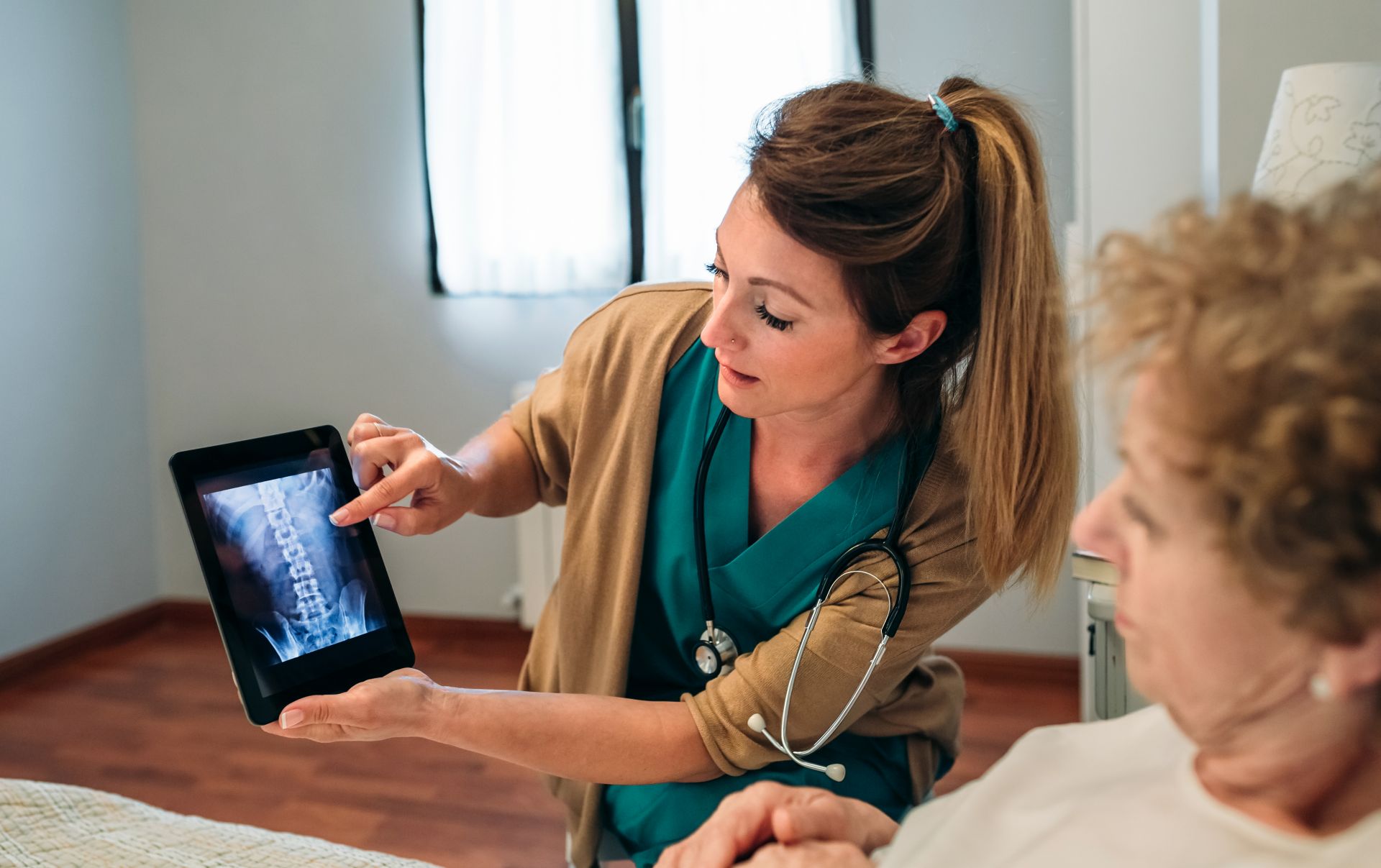Bone Density (DEXA)

DEXA stands for Dual Energy X-ray Absorptiometry. It is used to measure bone mineral density. DEXA uses a very small dose of ionizing radiation to produce pictures of the inside of the body (usually the lower spine and hips) to measure bone loss.
Who should have a DEXA scan?
According to the National Osteoporosis Foundation, women 65 years of age and older and younger postmenopausal women who have any of the osteoporosis risk factors, as well as those with specific fractures, should have a DEXA scan. Men are also at risk for osteoporosis as they age; especially if they have some of the risk factors of osteopenia or osteoporosis.
Start the conversation with your doctor to find out whether or not you may need a DEXA scan.
What to Expect
A physician's order is required to have a DEXA scan. It is a simple, quick and non-invasive way to diagnose osteopenia, osteoporosis, or risk for developing fractures. A board-certified radiologist will analyze your DEXA images and send a signed report to your primary care doctor.
Prior to getting your DEXA scan:
- It’s important to tell your doctor and the technologist if there is a possibility you are pregnant, have recently had a barium exam, or received an injection of contrast material for a CT, or radioisotope for a Nuclear Medicine scan.
- You should not take calcium supplements for at least 24 hours before your exam.
- Please be sure to wear loose and comfortable clothing without metal (zippers, buttons, or belts).
Schedule Your DEXA Scan. Contact the Central Scheduling Department at 540.316.5800 (a physician's order is required).
